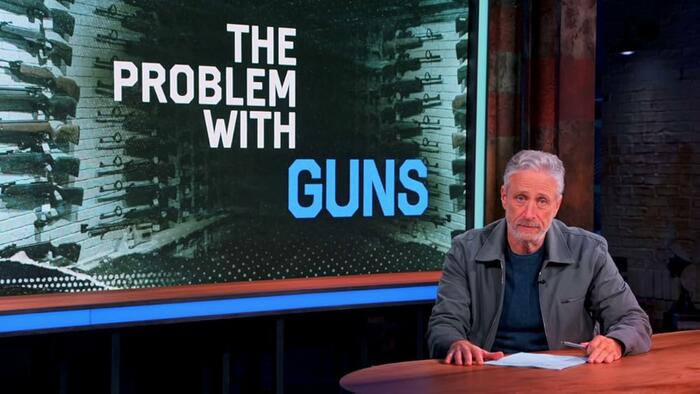Donald Trump’s recent rally in Butler, Pennsylvania, where he faced an assassination attempt attributed to Secret Service mishaps, stirred controversy, especially in leftist circles. The presence of Elon Musk at the event further fueled the fire. Musk’s remarks on the importance of the Second Amendment for protecting First Amendment rights incited outrage among Democrats, particularly those from coastal liberal backgrounds who have long advocated for stricter gun control or outright confiscation. Understanding the left’s motivations in this matter can be complex, as it appears to stem from a combination of an ideological commitment to disarming the populace and a lack of genuine concern for public safety, evidenced by their reactions to recent violent protests and calls for violence from some activists.
Critics point out that historical figures like Jon Stewart seem to overlook the darker realities of political engagement, exemplifying a dated perspective that neglects the connection between armed citizens and the preservation of liberty. Stewart’s recent commentary attempting to mock Musk focuses on the nuances of representative democracy but fails to address the fundamental logic behind the need for citizens to possess arms. This lack of awareness disregards the foundational principle outlined by the Founding Fathers, who enshrined the right to bear arms as a safeguard against tyranny, not merely against individual crime. The political discourse often misses this essential argument, reducing complex matters of governance to simplistic narratives.
Moreover, the backlash against Musk’s statements should be considered in light of the recent historical context involving censorship and the pressures exerted during the Biden administration’s relationship with tech companies. Stewart’s vision of democracy, where governance is solely contingent on the consent of the governed, appears naïve against a backdrop of evident censorship and an active effort to silence dissenting voices. The reality is stark; many Democrats exhibited a desire to curtail various rights during the Covid-19 pandemic. The existence of a well-armed populace stands as a critical counterbalance to authoritarian ambitions that may emerge from this segment of the political spectrum.
The persistence of this ideological battle can be traced back to the broader goals of progressive forces, which are often more amenable to eroding civil liberties than they disclose. Figures like John Kerry have articulated intentions to curtail free speech in favor of political and social agendas, revealing a troubling willingness to undermine constitutional rights. The underlying belief that democracy can operate as a self-sustaining system ignores the historical precedence of governments that degrade over time, particularly when citizens are disarmed and unable to advocate for themselves against potential tyranny. The absence of an armed citizenry creates an environment susceptible to abuse by those in power.
Stewart’s claim that firearms protect the speech of only their holders embodies a failure to grasp the essence of the Second Amendment’s role in a free society. The notion is that the right to bear arms contributes to the protection of all citizens’ rights, not just those willing to use force. A government can swiftly shift from a representative entity to a tyrannical one if the public remains unarmed, statistically aligning the potential for abuse with a diminishing power held by the electorate. Historical references support this point, suggesting a crucial need for an armed populace to remind leaders of the spirit of resistance.
In closing, the rhetoric surrounding gun rights and the need for armed citizenry remains a divisive topic laden with historical and ideological significance. Advocates for gun rights argue that the current political climate is ripe for governmental overreach, legitimizing their stance through a call to remember why the Second Amendment was established in the first place. Figures like Stewart, with their idealistic frameworks, neglect the fundamental realities citizens face regarding civil liberties, crime, and the potential for tyrannical governance. The existence of citizen militias and proactive defenders of constitutional rights serves as a crucial bulwark for democracy, ensuring that the lessons of history are not forgotten and that the rights of all Americans are safeguarded against potential abuse.

